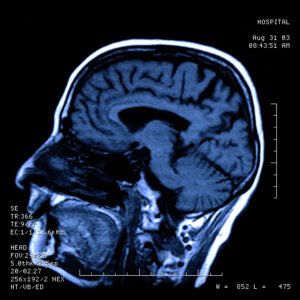The Men’s Guide to Aging Strong: How to Protect Your Heart, Lungs, and Brain
Aging is inevitable—but decline is optional. For men, your heart, lungs, and brain are the three pillars of performance, vitality, and independence. They determine not just how long you live, but how well you live.
After age 40, men experience physiological shifts that can slowly chip away at strength, energy, and mental sharpness if left unchecked. Testosterone dips, muscle mass decreases, stress and career demands rise, and risk factors for heart disease, lung issues, and cognitive decline creep in.
The good news? Proactive men’s health habits, strategic nutrition, and targeted exercise can dramatically slow these changes, keeping you sharp, strong, and in control of your future.
1. The Heart: Men’s Engine for Life and Strength

The heart is your body’s tireless pump. For men, heart health is the ultimate predictor of longevity, because cardiovascular disease remains the #1 killer of men worldwide. By your 40s and 50s, subtle changes are already at work:
How Aging Affects the Male Heart
-
Arteries Stiffen: Years of high stress, poor diet, or inactivity lead to arterial stiffness, raising systolic blood pressure.
-
Cholesterol Shifts: LDL (“bad”) cholesterol and triglycerides often rise while protective HDL declines.
-
Heart Muscle Thickens: The left ventricle may stiffen, reducing efficiency during intense exercise.
-
Electrical Slowdown: Men face a higher risk of arrhythmias, like atrial fibrillation, as pacemaker cells diminish.
Male-Specific Risk: Men develop cardiovascular disease about 10 years earlier than women, often with fewer early warning signs.
Foods for a Strong, Young Heart
-
Salmon, Mackerel, and Sardines: Omega-3s reduce arterial inflammation and lower triglycerides.
-
Spinach, Kale, and Arugula: High in nitrates to relax blood vessels and support blood pressure.
-
Berries and Cherries: Loaded with anthocyanins to fight oxidative stress in blood vessels.
-
Oats, Quinoa, and Lentils: High-fiber foods lower LDL cholesterol and improve insulin sensitivity.
-
Olive Oil and Nuts: Heart-healthy fats that combat plaque buildup.
-
Dark Chocolate (70%+): A small square daily can improve circulation and blood vessel function.
2. The Lungs: Fuel for Strength, Endurance, and Recovery

For men who want to stay athletic, lift heavy, or maintain stamina in the bedroom, lung health is critical. After 40, even without smoking, lung capacity naturally declines by 1% per year.
How Aging Affects Male Lungs
-
Reduced Elasticity: Lungs don’t spring back as easily, making deep breaths harder.
-
Weakening Diaphragm and Chest Muscles: Less power for both exercise and effective coughing.
-
Lower Gas Exchange: Alveoli lose efficiency, which can limit endurance during workouts.
-
Greater Infection Risk: Men over 50 are more susceptible to pneumonia and respiratory infections.
Male-Specific Risk: Men historically smoke more and have higher occupational exposure to pollutants, raising lifetime lung disease risk.
Foods for Powerful, Resilient Lungs
-
Tomatoes and Bell Peppers: High in lycopene and vitamin C to reduce airway inflammation.
-
Berries and Citrus Fruits: Support immune function and oxidative repair in lung tissue.
-
Walnuts and Flaxseeds: Omega-3s reduce airway inflammation.
-
Ginger and Turmeric: Anti-inflammatory spices that also improve mucus clearance.
-
Green Tea and Hydration: Support mucus thinning and reduce oxidative stress.
3. The Brain: Men’s Command Center for Focus, Memory, and Drive

A sharp brain powers career success, decision-making, problem-solving, and life satisfaction. For men, stress, poor sleep, and declining hormones can accelerate brain aging if ignored.
How Aging Affects the Male Brain
-
Processing Speed Declines: Reaction time and multitasking can slow by your 40s.
-
Memory Challenges Appear: Word recall and short-term memory may weaken.
-
Hormone Shifts Impact Focus: Lower testosterone can affect mood and mental sharpness.
-
Blood Flow Drops: Stiff arteries and high blood pressure can starve brain cells of oxygen.
Male-Specific Risk: Men are more prone to stroke and vascular dementia due to higher lifetime cardiovascular risks.
Foods to Keep a Man’s Brain Sharp
-
Blueberries and Blackberries: Antioxidants support memory and learning.
-
Fatty Fish: DHA-rich omega-3s build brain cell membranes.
-
Walnuts and Almonds: Support neurotransmitter function and reduce inflammation.
-
Broccoli and Leafy Greens: High in vitamin K, folate, and lutein for cognitive protection.
-
Olive Oil and Avocado: Promote healthy blood flow and reduce oxidative stress.
-
Eggs: Rich in choline for memory-supporting acetylcholine production.
Lifestyle Habits That Supercharge Men’s Organ Health
Nutrition is just part of the equation. For men who want to stay strong and vital into their 60s and 70s, these habits are non-negotiable:
-
Strength Training 3–4 Days/Week
-
Preserves heart and lung efficiency, builds testosterone, and supports brain function.
-
-
Daily Cardio or Conditioning
-
Even 20–30 minutes of brisk walking or interval training improves heart and lung performance.
-
-
Adequate Sleep (7–9 Hours)
-
Essential for memory, hormone balance, and cellular repair.
-
-
Stress Management
-
Meditation, breathwork, or outdoor activity keeps cortisol in check, protecting all three organs.
-
-
Regular Check-Ups and Screenings
-
Blood pressure, cholesterol, lung function tests, and cognitive assessments are vital for early intervention.
-
Bottom Line for Men
Your heart powers your strength, your lungs fuel your endurance, and your brain drives your ambition and clarity. Together, they are the trifecta of male vitality.
By combining organ-focused nutrition, age-appropriate training, and proactive health checks, men can stay sharper, stronger, and longer—well into their 60s, 70s, and beyond.
Aging is inevitable. Losing your edge is not.










